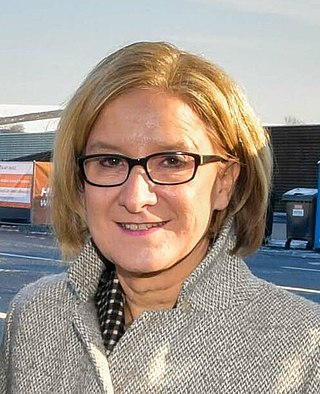| |||||||||||||||||||||||||||||||||||||||||||||||||||||||||||||
21 seats to the European Parliament | |||||||||||||||||||||||||||||||||||||||||||||||||||||||||||||
|---|---|---|---|---|---|---|---|---|---|---|---|---|---|---|---|---|---|---|---|---|---|---|---|---|---|---|---|---|---|---|---|---|---|---|---|---|---|---|---|---|---|---|---|---|---|---|---|---|---|---|---|---|---|---|---|---|---|---|---|---|---|
| Turnout | 67.73% | ||||||||||||||||||||||||||||||||||||||||||||||||||||||||||||
| |||||||||||||||||||||||||||||||||||||||||||||||||||||||||||||
 Results by state | |||||||||||||||||||||||||||||||||||||||||||||||||||||||||||||
European elections were held in Austria on 13 October 1996 to elect the 21 Austrian members of the European Parliament.
| |||||||||||||||||||||||||||||||||||||||||||||||||||||||||||||
21 seats to the European Parliament | |||||||||||||||||||||||||||||||||||||||||||||||||||||||||||||
|---|---|---|---|---|---|---|---|---|---|---|---|---|---|---|---|---|---|---|---|---|---|---|---|---|---|---|---|---|---|---|---|---|---|---|---|---|---|---|---|---|---|---|---|---|---|---|---|---|---|---|---|---|---|---|---|---|---|---|---|---|---|
| Turnout | 67.73% | ||||||||||||||||||||||||||||||||||||||||||||||||||||||||||||
| |||||||||||||||||||||||||||||||||||||||||||||||||||||||||||||
 Results by state | |||||||||||||||||||||||||||||||||||||||||||||||||||||||||||||
European elections were held in Austria on 13 October 1996 to elect the 21 Austrian members of the European Parliament.
In 1996, Austria was a country with a population of 7.9 million (5.8 million voters). The federal government was a "grand coalition" of the Social Democratic Party (SPÖ) and the Christian Democratic Party (ÖVP) and was led by Chancellor Franz Vranitzky.
At the last national election in 1995, the parties obtained the following results: SPÖ: 38.1%, ÖVP: 28.3%, FPÖ: 21.9%, Liberals: 5.5% and Greens: 4.8%.
An asterisk (*) indicates Members standing for re-election.
The electoral system used for the European elections was based on proportional representation, comparable to the system traditionally used in Austria for legislative elections.
The parties put forward lists of candidates. The seats are shared out on the basis of the percentage of the votes obtained by each list. Because of the limited number of seats, the lists were identical for the whole of Austria; there were no regional lists. The threshold required to win a seat was 4%. Candidates who win 7% of the total 'preference votes' obtained by their party would win one of the seats accorded to the party, irrespective of their position on the list. The lists of candidates had to be signed by three members of the national parliament, or by one Member of the European Parliament, or by 2600 voters. The minimum voting age was 18. European citizens residing in Austria were entitled to vote provided that they did not vote in their country of origin in the June 1994 European elections. 7205 European citizens registered and fulfilled that condition.
The following political parties entered lists for the European elections on 13 October 1996:
| Party or alliance | Votes | % | Seats | |||
|---|---|---|---|---|---|---|
| EPP | Austrian People's Party | 1,124,921 | 29.65 | 7 | ||
| S&D | Social Democratic Party of Austria | 1,105,910 | 29.15 | 6 | ||
| NI | Freedom Party of Austria | 1,044,604 | 27.53 | 6 | ||
| G | The Greens – The Green Alternative | 258,250 | 6.81 | 1 | ||
| ELDR | Liberal Forum | 161,583 | 4.26 | 1 | ||
| NI | The Neutrals | 48,600 | 1.28 | 0 | ||
| NI | Forum Handicap | 32,621 | 0.86 | 0 | ||
| GUE-NGL | Communist Party of Austria | 17,656 | 0.47 | 0 | ||
| Total | 3,794,145 | 100.00 | 21 | |||
| Valid votes | 3,794,145 | 96.58 | ||||
| Invalid/blank votes | 134,393 | 3.42 | ||||
| Total votes | 3,928,538 | 100.00 | ||||
| Registered voters/turnout | 5,800,377 | 67.73 | ||||
| Source: Ministry of Interior | ||||||

The ÖVP won a plurality of nationwide votes, winning five federal states out of nine. The SPÖ and the FPÖ each won two states; in particular, the SPÖ prevailed in the capital city-state of Vienna. The ÖVP recorded their best results in Vorarlberg, the country's westernmost and second-smallest state. Simultaneously, the SPÖ performed the worst there, at just 13.7%. Neither party reached at least 40% in any state: the SPÖ's 38.1% in Burgenland was the best performance for any party in any state.
| State | SPÖ | ÖVP | FPÖ | GRÜNE | LiF | The Neutrals | Forum Handicap | KPÖ | |
|---|---|---|---|---|---|---|---|---|---|
| 38.1 | 33.1 | 21.8 | 3.0 | 2.5 | 0.6 | 0.6 | 0.2 | ||
| 34.4 | 19.6 | 37.2 | 3.9 | 2.6 | 0.8 | 1.3 | 0.3 | ||
| 29.3 | 35.7 | 23.1 | 5.3 | 4.2 | 1.3 | 0.7 | 0.5 | ||
| 28.5 | 30.9 | 28.1 | 6.5 | 3.5 | 1.5 | 0.7 | 0.4 | ||
| 24.8 | 29.7 | 31.3 | 7.6 | 4.4 | 1.1 | 0.8 | 0.3 | ||
| 29.2 | 30.4 | 28.9 | 5.8 | 3.2 | 1.1 | 1.0 | 0.6 | ||
| 17.0 | 33.7 | 33.7 | 8.6 | 4.6 | 1.2 | 0.9 | 0.4 | ||
| 13.9 | 36.2 | 33.1 | 9.0 | 4.9 | 2.2 | 0.7 | 0.2 | ||
| 34.0 | 21.9 | 24.2 | 10.1 | 6.6 | 1.5 | 1.0 | 0.7 | ||
| 29.2 | 29.7 | 27.6 | 6.8 | 4.3 | 1.3 | 0.9 | 0.5 | ||
| Source: Austrian Interior Ministry | |||||||||

Politics in Austria reflects the dynamics of competition among multiple political parties, which led to the formation of a Conservative-Green coalition government for the first time in January 2020, following the snap elections of 29 September 2019, and the election of a former Green Party leader to the presidency in 2016.

The Austrian People's Party is a Christian-democratic and liberal-conservative political party in Austria.

The Greens – The Green Alternative is a green political party in Austria. The Greens are in a coalition with the Austrian People's Party (ÖVP) in the Nehammer government. Before they were part of the Schallenberg government and the Second Kurz government. It won 8.2% of votes cast in the 2024 Austrian legislative election. The current President of Austria, Alexander Van der Bellen, is from the Green Party.

Legislative elections were held in Austria on 1 October 2006 to elect the 23rd National Council, the lower house of Austria's bicameral parliament.
An election was held in 2009 to elect the delegation from Austria to the European Parliament. Austria will have 17 seats in the European Parliament, instead of the 18 that the country had before the re-allocation of seats.

Legislative elections were held in Austria on 28 September 2008 to elect the 24th National Council, the lower house of Austria's bicameral parliament. The snap election was called after Austrian People's Party (ÖVP) withdrew from the ruling grand coalition with the Social Democratic Party of Austria (SPÖ) in July. Due to dissatisfaction with the governing parties, the opposition and minor parties were expected to make significant gains. Opinion polling indicated that up to seven parties could potentially win seats.

The 2010 Viennese state election was held on 10 October 2010 to elect the members of the Gemeinderat and Landtag of Vienna.

Legislative elections were held in Austria on 29 September 2013 to elect the 25th National Council, the lower house of Austria's bicameral parliament.
A legislative snap election for the National Council in Austria was held on 28 September 2008. The previous election was held on 1 October 2006. The election was caused by the withdrawal of Austrian People's Party leader Wilhelm Molterer from the governing grand coalition on 7 July 2008. Due to dissatisfaction with the grand coalition and the two main parties, it was widely expected to be a realigning election, with gains for the opposition and up to seven parties expected to be in the National Council after the election. The losses for the government parties resulted in strong gains for the far right, while neither the Liberal Forum nor the Citizens' Forum Austria gained as much as 2% of the vote, defying earlier expectations. The result of the election was seen as strong for the far-right and in support of Eurosceptics.

NEOS – The New Austria and Liberal Forum is a liberal political party in Austria. It was founded as NEOS – The New Austria in 2012. In 2014, NEOS merged with Liberal Forum and adopted its current name.

The 2013 Salzburg state election was held on 5 May 2013 to elect the members of the Landtag of Salzburg.

Legislative elections were held in Austria on 15 October 2017 to elect the 26th National Council, the lower house of Austria's bicameral parliament. The snap election was called when the coalition government between the Social Democratic Party of Austria (SPÖ) and Austrian People's Party (ÖVP) was dissolved in May by the latter party's new leader Sebastian Kurz.

Legislative elections were held in Austria on 29 September 2019 to elect the 27th National Council, the lower house of Austria's bicameral parliament. The snap election was called in the wake of the Ibiza affair in May, which caused the resignation of Vice Chancellor Heinz-Christian Strache and the collapse of the governing coalition of the Austrian People's Party (ÖVP) and Freedom Party of Austria (FPÖ). The government subsequently lost a motion of no confidence in parliament, before ÖVP Chancellor Sebastian Kurz was replaced by non-partisan Brigitte Bierlein on an interim basis.

Legislative elections were held in Austria on 29 September 2024 to elect the 28th National Council, the lower house of Austria's bicameral parliament.

The 2015 Upper Austrian state election was held on 27 September 2015 to elect the members of the Landtag of Upper Austria.

The 2015 Viennese state election was held on 11 October 2015 to elect the members of the Gemeinderat and Landtag of Vienna.

The 2004 Salzburg state election was held on 7 March 2004 to elect the members of the Landtag of Salzburg.

The 2023 Lower Austrian state election was held on 29 January 2023 to elect the members of the Landtag of Lower Austria.

The 2023 Carinthian state election was held in the Austrian state of Carinthia on 5 March 2023.

Hausruckviertel, also known as Electoral District 4C, is one of the 39 multi-member regional electoral districts of the National Council, the lower house of the Austrian Parliament, the national legislature of Austria. The electoral district was created in 1992 when electoral regulations were amended to add regional electoral districts to the existing state-wide electoral districts and came into being at the following legislative election in 1994. It consists of the city of Wels and the districts of Eferding, Grieskirchen, Vöcklabruck and Wels Rural in the state of Upper Austria. The electoral district currently elects eight of the 183 members of the National Council using the open party-list proportional representation electoral system. At the 2019 legislative election the constituency had 273,379 registered electors.